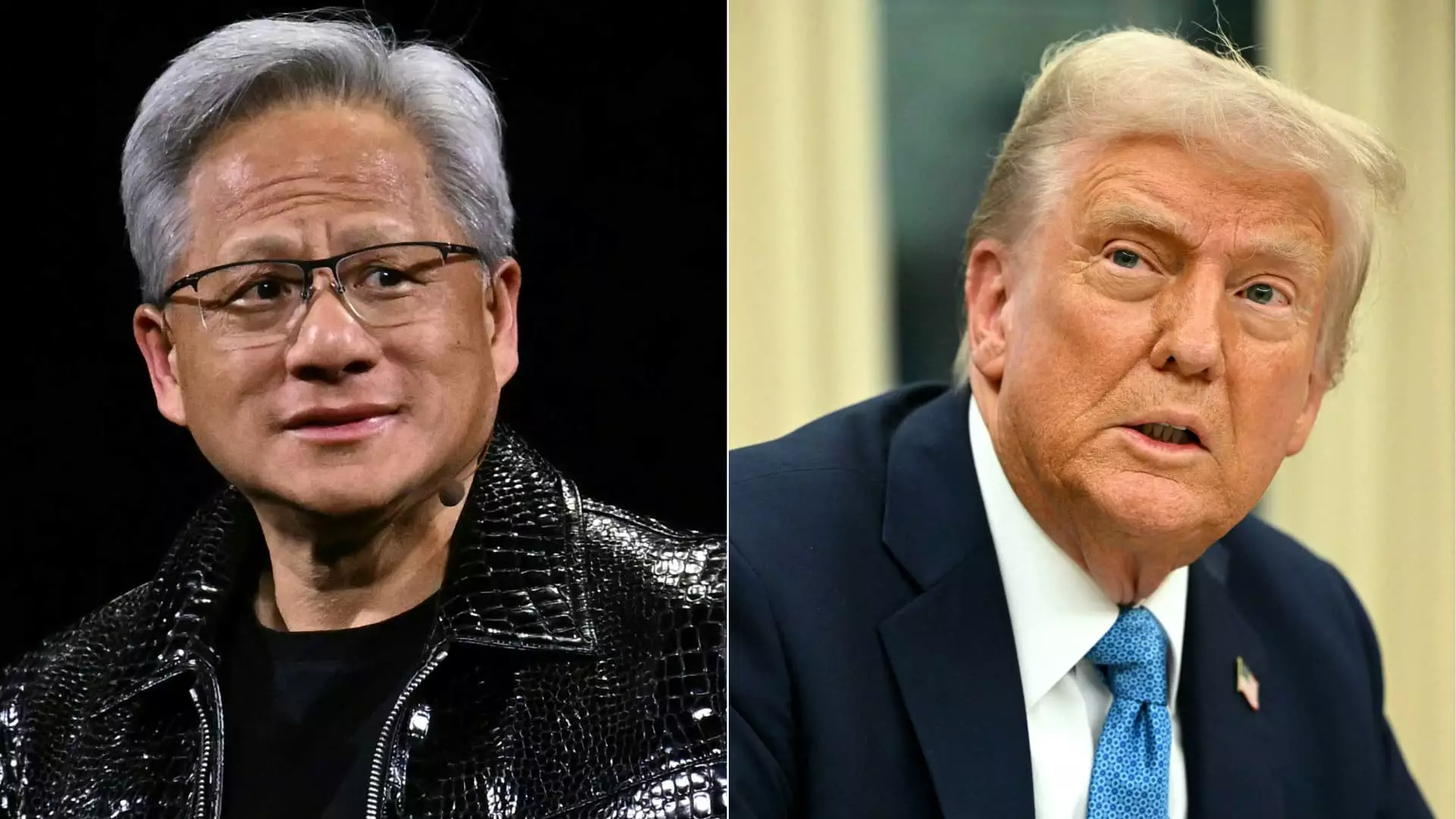In a week that seemed improbable just months prior, technology stocks have made a remarkable rebound. With an impressive surge of 17% for Tesla and 16% for Nvidia, investors are witnessing a renaissance in the tech sector. It’s worth analyzing the factors contributing to this resurgence—particularly the easing of global tensions and a sudden pivot in U.S. foreign policy. The initial sense of uncertainty bred by trade wars has seemingly morphed into a period of cautious optimism, inviting more investment flows into the stock market.
Political Climate as a Catalyst
Surprisingly, it appears that President Trump’s recent Middle East diplomacy has injected new life into tech stock valuations. By scoring significant deals during his visit, Trump has not only rekindled investor confidence but also signaled a pragmatic approach to international relations. This shift, evidenced by both China and the U.S. announcing a temporary halt to tariff increases, suggests a more conducive environment for technology companies to thrive. The trade war that has dominated headlines has quietly stepped aside, allowing for a focus on collaboration rather than contention.
The AI Gold Rush
The surge of tech stocks is underpinned by an escalating race in artificial intelligence (AI). Nvidia’s announcement to supply over 18,000 Blackwell chips to Saudi Arabia exemplifies this trend. In tandem, we see the likes of AMD joining the fray, pivoting to engage with Middle Eastern markets. The promise of AI is a compelling force, attracting not just capital but also partnerships that lay the groundwork for future innovations. As markets eagerly anticipate the next wave of technological advancements, companies that are quick to adapt stand to gain tremendously.
The Future of Global Tech Partnerships
Elon Musk’s ambition in Saudi Arabia, particularly concerning the deployment of SpaceX’s Starlink for aviation and maritime use, additionally fuels the fervor around tech stocks. The prospective arrival of robotaxis, albeit still in the concept phase, is stirring imaginations and encouraging speculative investment—no small feat in risk-averse financial climates. Government collaborations, like the proposed AI campus in the UAE, promise to create a hub for technological advancements, further solidifying the notion that the future of tech lies in strategic partnerships that transcend borders.
A Shifting Regulatory Landscape
Moreover, the White House’s potential revisions to chip export regulations under the Biden administration paint a favorable picture for the tech sector. By simplifying the rules that govern chip exports to China, we may see a monumental shift in how companies like Nvidia operate in their key markets. After grappling with a hefty $5.5 billion charge from disputes over shipments to China, the possibility of an easing curtailment regime is not just beneficial; it’s essential for revitalizing the U.S. tech landscape.
No one can deny that the macroeconomic and political climates are intertwined, influencing stock performances and shaping investor sentiment. As technology companies position themselves to capitalize on emerging markets and form alliances that promote innovation, it’s clear that this isn’t merely a market uptick—it’s a metamorphosis in how we view global tech engagements.

